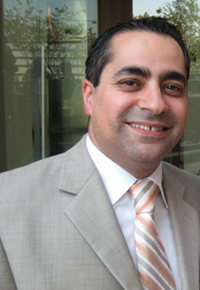SC CTSI Program Director El-Khoueiry Among Founding Members Of New Cancer Research Consortium
International consortium aims to pool data, specimens, and research concepts from around the world to better understand and treat hepatobiliary cancers.
Anthony El-Khoueiry, MD, director of the SC CTSI Clinical Translation program, is among the founding members of the new CanLiv International Hepatobiliary Cancers Research Consortium, which gathers doctors and researchers from around the world to pool data, specimens, and research concepts to better understand and treat hepatobiliary cancers.

El-Khoueiry is an expert in the treatment of hepatobiliary cancers, a member of the National Cancer Institute Hepatobiliary Cancers Task Force, and the co-chair of the hepatobiliary cancers subcommittee of the Southwest Oncology Group, a national cooperative group for cancer research.
Hepatobiliary cancers—cancers of the bile ducts, gallbladder, and liver—are commonly referred to as “orphan tumors” due to the lack of research, funding, and awareness of these cancers. For this reason, the founding of the CanLiv International Hepatobiliary Cancers Research Consortium is an essential step in directing much-needed attention toward this group of cancers.
The consortium will focus its efforts on three initiatives: an international hepatobiliary cancers registry, a virtual biospecimen repository, and a hepatobiliary cancer research grant program.
The effort was spearheaded by the CanLiv Foundation, a nonprofit organization that brings together doctors, researchers, patients and their families, and other partners to advance research and improve patient outcome for cancers of the bile ducts, gallbladder, and liver.
View the full list of founding consortium members here.



